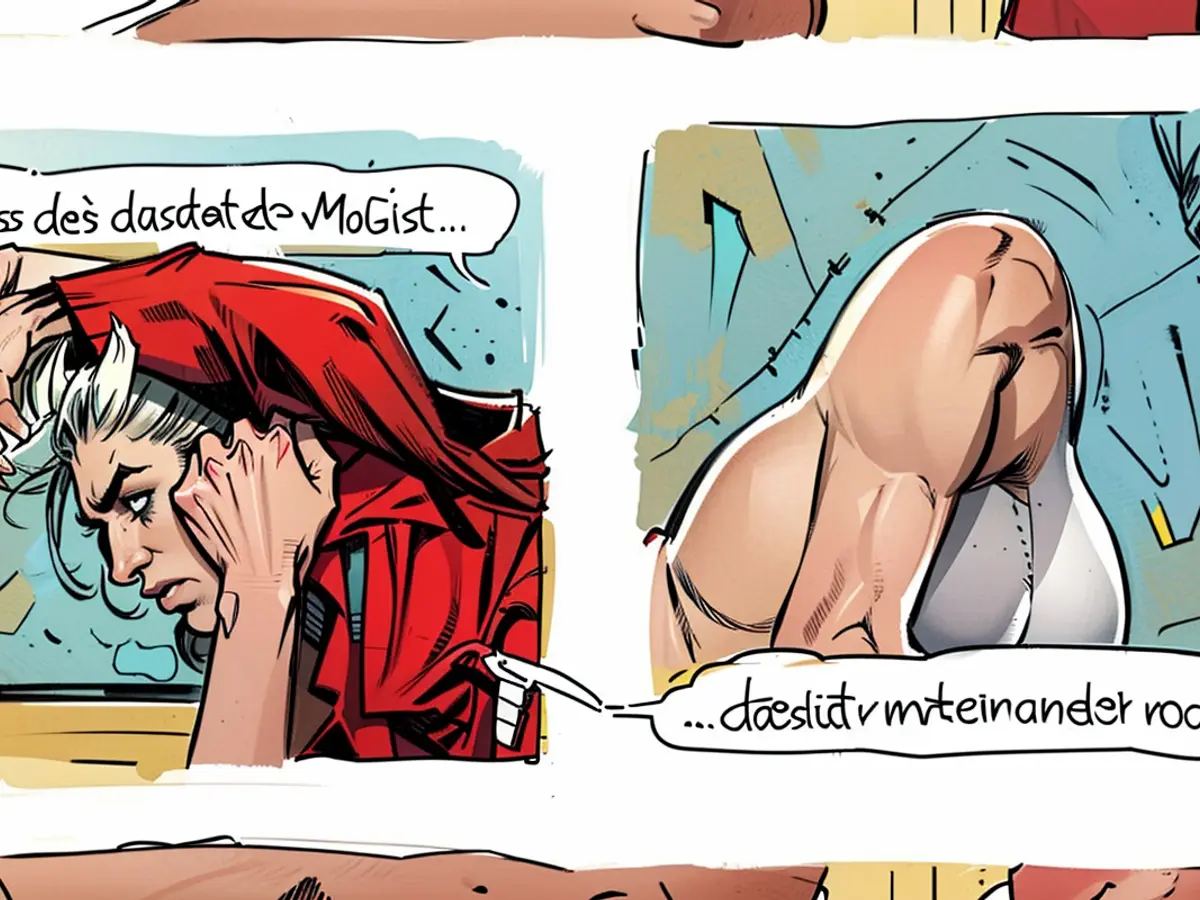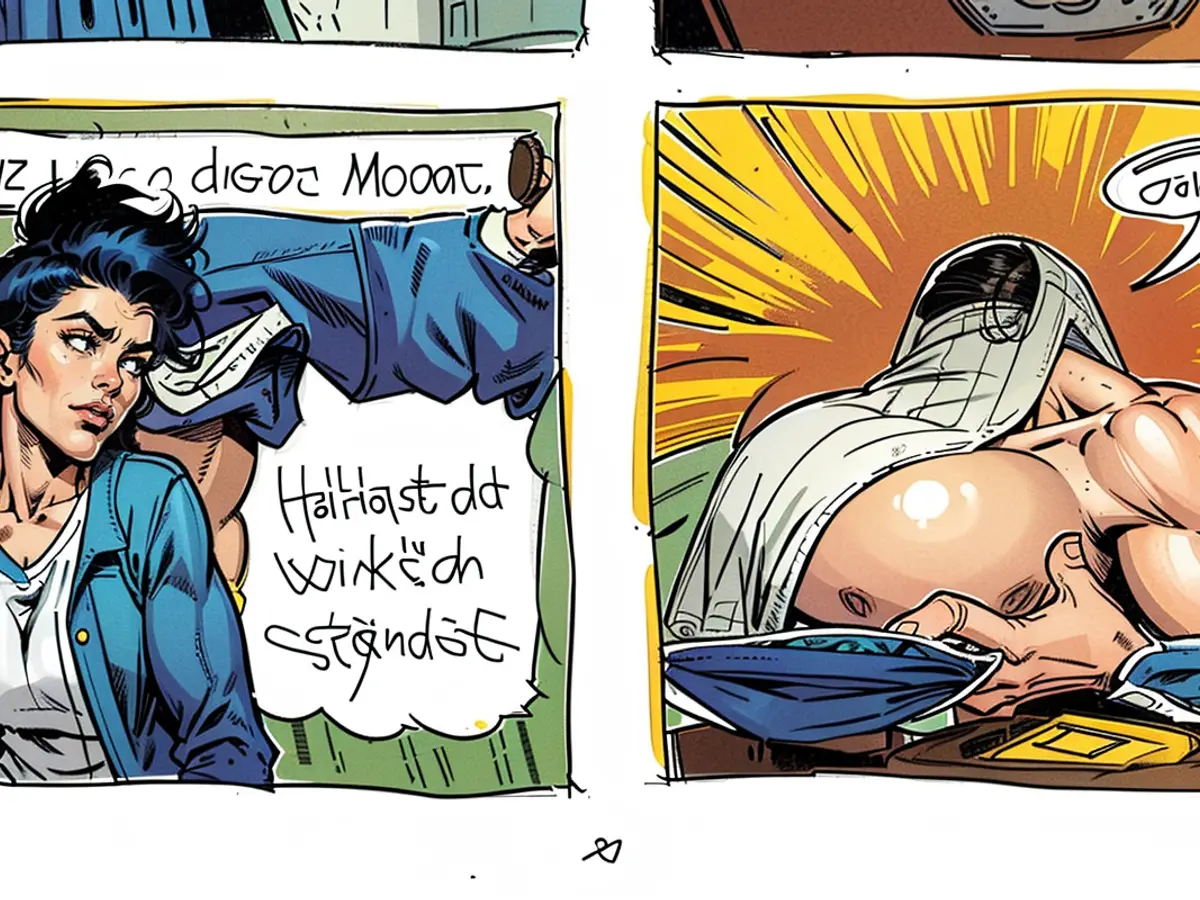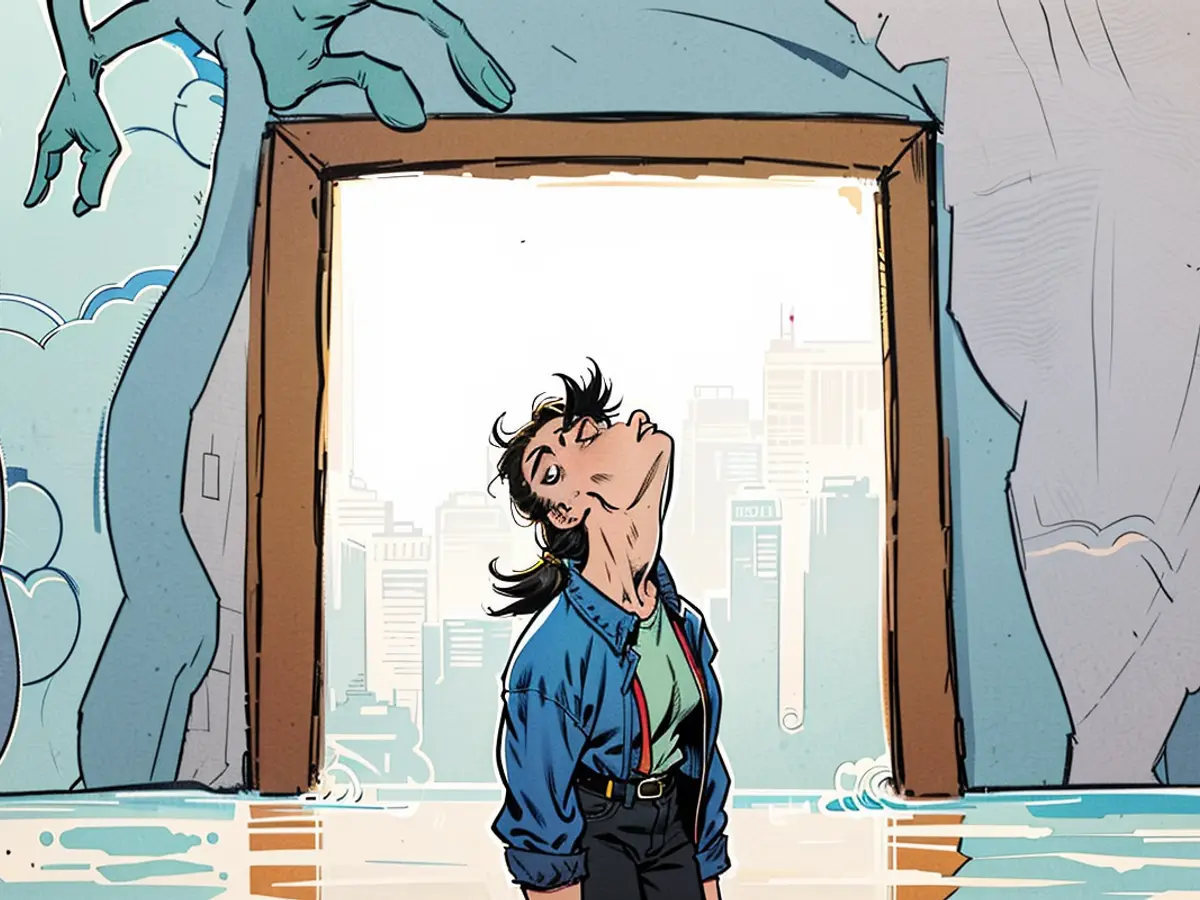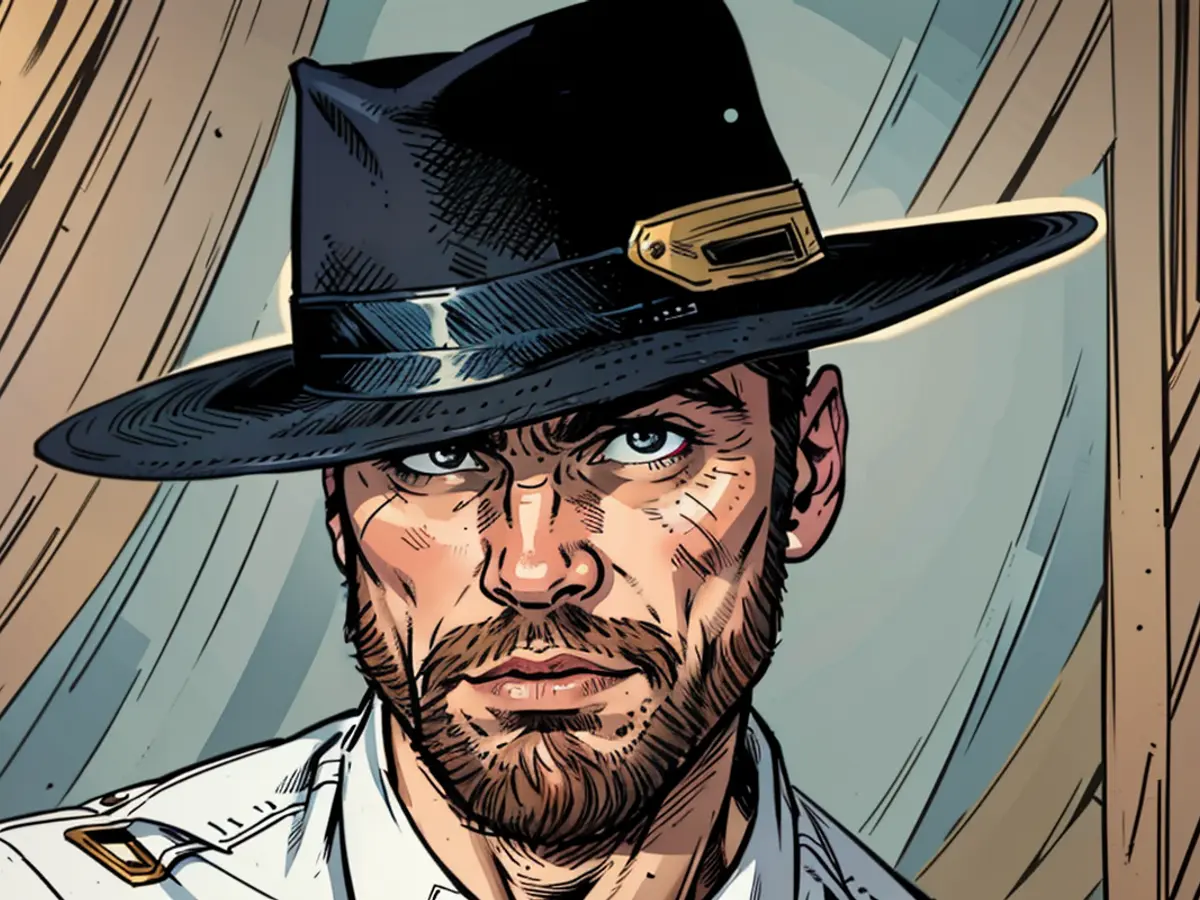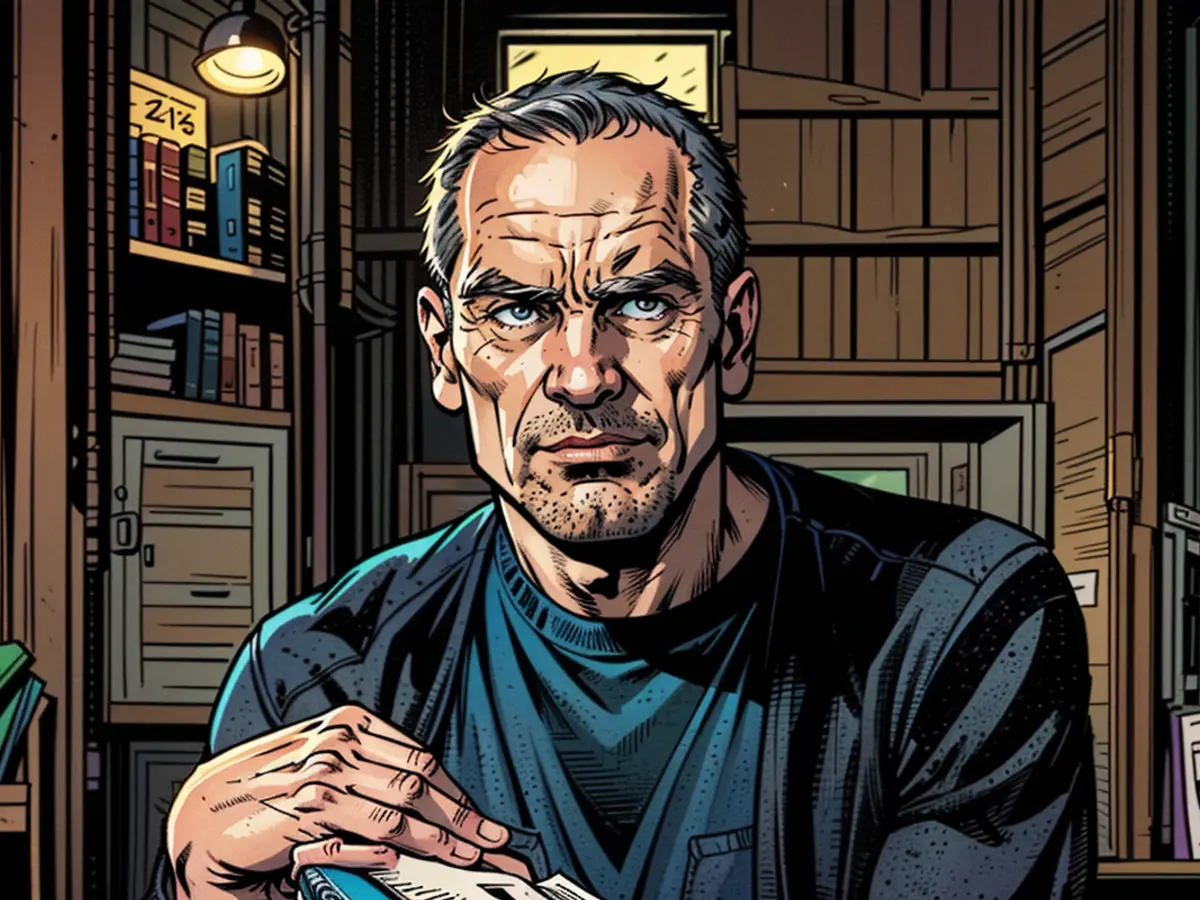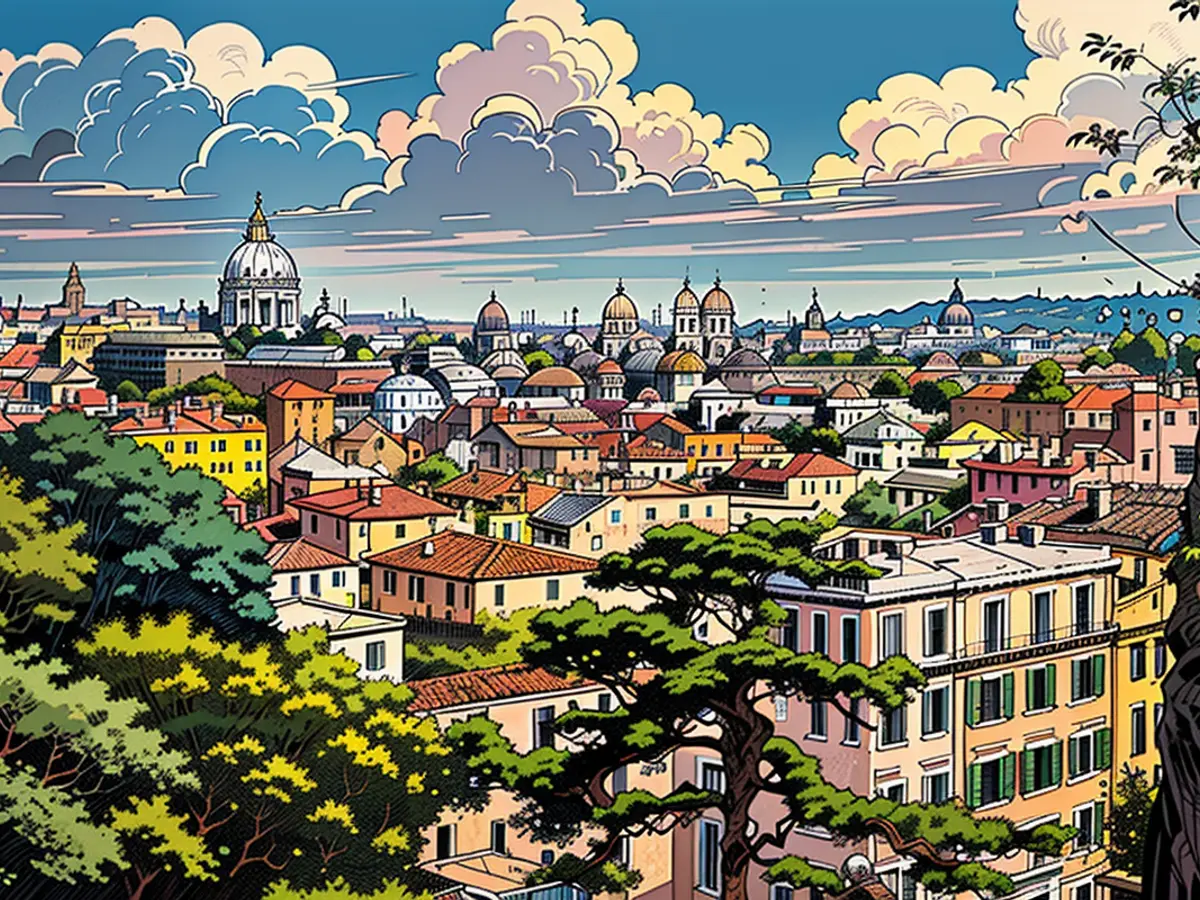"There's no overpowering the multitude of conspiracy theories circulating"
Conspiracy theories provide easy solutions to intricate dilemmas. They breed distrust - and can dissolve familial bonds. Sharing her own experiences, Ika Sperling presents in her comic "The Great Reset" (excerpt) a split within a family. In an interview with ntv.de, she discusses the challenging coexistence with conspiracy theory believers, attempts at maintaining contact, and resources for afflicted families.
ntv.de: The comic specifies that the story is fictional, and any semblance to genuine individuals is purely coincidental. The subject matter is also personal.
Ika Sperling: The story is indeed inspired by my family, experiences, and sentiments. However, the characters have been altered. On one hand, I've gained some distance from them. On the other hand, reality is much more convoluted than the straightforward portrayal in the comic. Additionally, I have the freedom to present myself as I prefer in the book, whereas they do not, so the distortion can be viewed as a show of respect towards them.
The comic's focus is on the protagonist's confrontation with her father, who is progressively drawn into conspiracy theories. This experience is also rooted in personal history. When did you recognize that your father was altering?
In 2014, my father began embracing AfD narratives. I was 16 at the time and was just discovering politics. Initially, I believed I could persuade him utilizing my arguments and engaged in numerous discussions with him. However, I soon realized that I was hitting a brick wall. Eventually, I had to find a middle ground to coexist under the same roof. Consequently, I expressed: If you express something racist, you'll receive a warning, and if you persist, I'll rise and depart. This proved successful as it enabled us to circumvent the most inflammatory topics.**
Did this strategy prove effective in the long run?
It's challenging to maintain a relationship with so many unmentionable topics. Moreover, my father's conviction in conspiracy theories grew more engrained over time. Eventually, it became impossible to avoid inflammatory topics. Every discussion centered around COVID-19 measures, lockdown, or politicians. Even when I required new shoes, it inevitably turned into a discussion about the lockdown closing shops.**
Did you watch any conspiracy theory videos yourself?
I delved into numerous videos and podcasts to assess if there were any means to persuade conspiracy theory adherents with logical arguments. However, in the end, I could not prevail against the deluge of conspiracy theories.**
Could you rationalize why individuals are attracted to this?
At times, I questioned if there was any truth to it, despite knowing it was an anti-Semitic conspiracy theory. However, I could always cast off these doubts, although it did take a toll. I assumed a sense of responsibility towards my father, feeling an obligation to prevent his radicalization.**
However, this did not succeed?
It was disheartening to realize that I was incapable of succeeding. Eventually, I felt helpless, as everything I said was scrutinized because I was purportedly only exposed to mainstream media. When that argument surfaces, rational discourse becomes impossible.
How did you respond then?
For me, it was crucial to connect with my father on an emotional level. We couldn't discuss conspiracy theories, but emotions. Since I could not convince him, and he could not convince me, we could talk about his emotions, which allowed us to reconnect, albeit indirectly. The comic's protagonist also attempts to approach her father in the same manner.**
Why is the father figure represented as a transparent figure filled with liquid in the comic?
For me, it is reminiscent of a soap bubble. Its origin serves a practical purpose: I wanted to ensure that the father figure did not resemble my real father at all. Initially, I drew him as a type of amorphous blob. This distortion appealed to me, and I kept it.**
Why does this bubble lose liquid throughout the story?
When I devised the bubble's form, I conceived of the graphic emblem of leaking. It's something that can't be stopped. Regardless of how much the figure tries, it cannot control it. This symbolizes the feeling I had as my father and I grew further apart. No matter how much I tried to prevent it, I could not halt it. This gradual, diffuse loss of someone makes them no longer fully comprehendible. Sometimes, the figure behaves as it used to, then suddenly threatening politicians with violence. It's no longer recognizable. This dissonance is difficult to bear.**
The protagonist originates from the city and visits her parents in the countryside. Do you believe there is an increasing rift between both spheres of life?
This theme of estrangement was significant to me. When one moves to a city and then returns, everything changes. Not only does the person alter, but the place of origin does too: new stores emerge, old ones disappear. I intended to illustrate the dynamics of this village community, as well as the protagonist's estrangement, who is greeted as "Professor Lady" due to her studies. Simultaneously, I have profound respect for this village.
Different attitudes exist: some individuals know about the issue but choose not to discuss it, there's an individual pretending empathy yet seeking details to spread gossip, and others unknowingly supporting the father's tales. They had the potential to halt more severe issues. Regarding my personal views, their significance might be more influential if my father's associates intervened. I found it frustrating that everyone seemed to simply comply.
What kind of responses have you received to the comic book?
In fact, favorable reactions dominate. Many individuals have messaged me expressing that the book resonated with them because they've known someone dealing with conspiracy theorists. It's often an aunt, relative, sibling, friend, partner, or even their own kids who are captivated by conspiracy theories. Many readers could identify with the story.
What advice would you provide to families coping with the threat of conspiracy theories?
I suggest consulting a counseling service. There are numerous options available. Ultimately, I am just an individual sharing their perspective as a relative. I wouldn't presume to recommend specific actions, such as ceasing communication or continuing discussions. The motivations behind believing in conspiracy narratives are always intricate and multifaceted. Additionally, each affected family is a distinct system that requires tailored counseling.
Have you also taken advantage of assistance offers?
I was part of a self-help group where we discussed our experiences. Primarily, this was about sharing, assuring that you're not alone. This experience was particularly beneficial for me as I realized that there are numerous others who share this sense of responsibility. It was also beneficial to allocate my energy towards something positive. This attitude applies to the comic as well. It allowed me to transform a negative experience facing me and my family into a personal creation, offering me narrative control. Additionally, book presentations provided me with opportunities to interact with others or recommend healing resources.
Markus Lippold conversed with Ika Sperling.
In the challenging coexistence with conspiracy theory believers, Ika Sperling mentioned that the lockdown discussions often became a topic of contention. Her father, who was drawn into conspiracies, frequently raised concerns about the measures taken to combat COVID-19.
As the lockdown restrictions evolved, Ika found it increasingly difficult to avoid discussions about the topic, even in mundane conversations like shopping for new shoes. The focus on conspiracy theories and lockdown became a constant source of tension between them.
